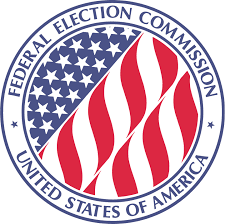The Federal Election Commission has adopted new guidelines requiring political committees to include more information about the purposes of their various disbursements. It goes without saying that the “reform community” is not pleased. (Is there a grumpier “community” anyplace in America?). This time it’s the Campaign Finance Institute (CFI), which seems to think that the purpose of disclosure is to satisfy its own inquisitive nature.
CFI is upset because under the FEC’s new guidelines – which, remember are more restrictive than before (no matter how much regulation is passed, the “reform community” never ceases to press on in favor of still more regulation) – “filers can list ‘purposes’ like ‘printing,’ ‘postage,’ ‘online services,’ ‘telemarketing,’ and ‘direct mail,’ without saying whether this spending is for fundraising, voter registration, political messages to voters, web hosting, party events or something else.” Well, well – we are on the verge of anarchy, aren’t we?
And why, exactly, is this a problem? It appears part of the “problem” may simply be some bruised egos:. “the Commission largely ignored the … public comments it had received on its proposal, from the Campaign Finance Institute…” It’s a tough world out there. We’ll note that the next time the Washington Post and New York Times ignore our press releases.
But CFI has substantive concerns as well:
“There is no requirement to specifically denote that spending is for political advertising in newspapers and on the Internet, or, in the case of production services and communications buyers, for TV and radio ads. No wonder that CFI and other groups have trouble responding to questions from the public and Congress about changing campaign media costs!”
Ah! It’s a problem because CFI can’t answer media questions. This is a national crisis! There oughta be a law!
Look, the purpose of campaign finance disclosure is to allow the public to know from whom candidates receive their campaign contributions. According to the Supreme Court, in Buckley v. Valeo and reiterated elsewhere, this disclosure, otherwise an invasion of privacy, serves to prevent corruption (or its appearance). We might also note that the public may gain some benefit from knowing who is supporting whom, i.e. “I’m going to vote (for/against) that candidate because he took money from (the NRA/the Sierra Club), and I (agree/disagree) with that group.”
The purpose of disclosure is not to help the CFI write reports so that they can get more Carnegie and Pew grants to lobby for more regulation, or even, as they put it, to help them “advance public knowledge of money in politics.” It is to prevent corruption. While political professionals may find it interesting, there is no great – or really small – public interest in knowing if funds were spent on ads for radio or tv, or if it was spent for voter registration or online maintenance.
Maybe what we really need is more disclosure on form I-990, that non-profits have to fill out every year, to assist groups that want to “advance public knowledge of money in non-profits.” For example, CFI’s Form 990 hardly tells you a thing. “Legal fees?” Is that to prosecute lawsuits, or defend themselves from lawsuits? Or to ward off an IRS investigation? Or to file complaints comments at the FEC? “Printing and Publications:” is that for promotional material, or studies and reports, or press releases? Design fees, or printing? People want to know. How can we answer when the reporter from the Chronicle of Philanthropy calls? Of course, all this reporting would place a bit of a burden on non-profits such as CFI – but why not? They’re trying to influence public policy, after all. The public has a right to know!
OK, maybe we’re just getting silly, here. But then, with McCain-Feingold a failure and reformers out of ideas, it appears that the silly season has arrived, and we’re just trying to get in the spirit.
Meantime, let’s remember that disclosure has its price, and not everything labeled “disclosure” is beneficial, called for, or constitutional. Disclosure is supposed to help the people learn guard against corruption – it is not to help congressmen find out who is talking to voters in ways the members don’t like, or even to satisfy the curiosity of journalists and the good folks at CFI.













